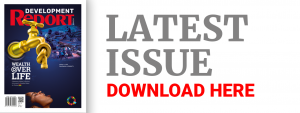Saving The Environment

The transformative and impact-driven journey of Environment360
How Environment360 was birthed
I moved to Ghana in May 2011 with the thought that it will be an amazing thing to live next to the beach. So, I envisioned a regular visit to the beach but when I arrived and realized the beach was not the cleanest, it was a little bit of a downer. One day some friends and I were at a very popular beach and there were some kids playing in the water. A little boy got out of the water and pulls off a plastic bag. I invited him over and asked him how it feels playing on a dirty beach and he was absolutely clueless because that was the only beach he has ever seen until I started showing him pictures of some beaches around the world and he was just amazed.
At this point in time, something clicked that we needed to do something “so that dirt does not become the new normal in Ghana”. Growing up during the ’80s in the United States, there was the “Keep America Beautiful Program” by a group of organizations to curb the state’s waste management problem. A large component of this program was the education of children through the “semi the lightning bird that went around saying don’t litter, put your waste in the right bin”. Almost forty (40) years later, you will see that attitude towards waste management in the United States is completely different. This was the origin of Environment360, to support a different attitude and perception towards the way people handle waste here in Ghana.

Programs and Policies
Environmental Sensitization Curriculum
After we won the United Nations Development Programme (UNDP) Waste Recovery in Innovation Challenge for Advocacy and Awareness, we have been able to partner with friends in India Fyn as well as the University of Maastricht to create a curriculum for education on Environmental Sensitization.
This program is been done closely with the Ghana Education Service (GES), Accra Office and they have tested the curriculum and given feedback for its adjustment. However, we are hoping that when the curriculum is validated, the Ministry of Education will say this is really working in our schools and they will support and scale it to every part of the country since they have the capacity for it.
Informal Sector Programs
Environment360 through the German Federal State of North Rhine-Westphalia has been working with informal sector workers to help them reduce the plastic litter by providing financial incentives for plastics that are unattractive to collect such as PET bottles. The local municipal government has also been key in helping push this particular agenda as well as working closely with the informal sector to better understand the gaps and where we can help close those gaps.
In our bid to reduce these gaps, we are providing business and capacity training for these individuals who are mostly women to help strengthen their businesses. While strengthening their businesses we also help them close the gap in two critical areas; storage and transportation. We have set up collection points for these pickers to send their materials likewise transporting these materials to recyclers. These interventions will help them collect more as they don’t worry about space to keep the items for a long period of time and also save from the already insignificant sums they receive. Continue Here




